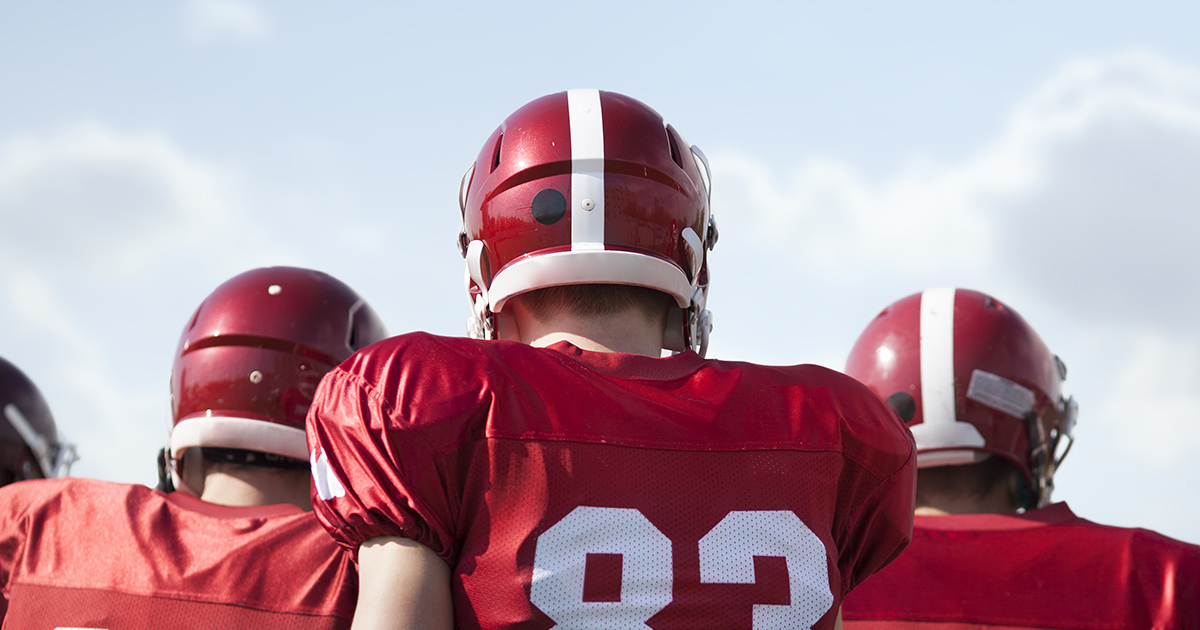
Answering your school and sports physical questions
Ready to schedule a school and sports physical?
Planning for your child’s return to school starts with scheduling their physical exams, depending on their age, grade level and sports participation.
If your child is of an age or grade where a school physical is required and they are active in sports, you can tend to both their school and sports physicals with just one appointment.
Shawn Piers, director of physician practice for family medicine providers at OSF HealthCare, explains the difference in the physicals and what parents should take away from those appointments.
Q. What happens during a physical exam?
A. Parents fill out history forms and we go over immunization records to determine if any are needed. Then, the provider will often check the following:
- Blood pressure and pulse
- Ears, nose and throat
- Eating habits
- Heart
- Height and weight
- Lungs
- Physical activity
- Prior illness
- Prior or current injuries
- Prior or current medications
- Sleeping habits
- Spine and joints
Q. What is the difference between a sports physical and a school physical?

A. School physicals focus mostly on vaccinations and general health concerns. They are important to determine if the child has any health conditions that must be monitored while at school (e.g. asthma, peanut allergy), if they need any immunizations to prevent the spread of disease and to pick up on any general health concerns that might not have prompted the parents to bring the child in, such as obesity or elevated blood pressure.
Sports physicals focus mostly on the heart and lungs and screening for disorders that could be dangerous for a child to participate in sports. It also allows for discussion about concussions, how to prevent them and whether it is safe to play with the number of previous concussions.
Documentation is typically done on state-issued sports physical forms online in your child’s electronic medical record.
Some pediatric offices will do both sports and school physicals all in the same visit, which is an added benefit of getting those physicals done at primary care office instead of doing them at an urgent care facility. Just tell the staff when you check in, and the provider should be able to accommodate you.
Q. What should parents be prepared to address with the provider during a physical?
A. Parents should be prepared to discuss their child’s immunization history. We usually have health history on file if they are an established patient, but it helps to bring if they are a new patient. Health history would include things like diet and activity history, dental and eye history and any physical, emotional or mental health concerns.
At a sports physical, your provider will ask about your family history of heart disease and other health issues, any incidents of injury while playing sports such as concussions, or any incidents of passing out, chest pain or shortness of breath.
Q. What do they do at a sports physical for teens?
A. Sports physicals for teen girls: Signs of puberty may be evaluated. The provider will ask about menstrual history and any history of heavy bleeding or severe menstrual pain.
Sports physicals for teen boys: Signs of puberty may be evaluated. The provider may check the genitals for tumors or hernia. The provider may ask the teen to cough while examining the scrotum. It’s a normal and necessary part of ensuring teen males are healthy.
Q. What are the top takeaways for parents from their child’s school physical?
A. Parents will get preventive advice and learn about their child’s growth details and immunizations they received or might want to consider.
Q. Will my child get any shots at their physical?
A. Depending on your child’s age and if they are due for immunizations and vaccines, they may receive a shot. If your child is afraid of getting shots, be sure to calmly reassure them without causing them unnecessary fear or anxiety.
Q. Can I wait until right before school starts to schedule a physical?
A. School and sports physicals can be completed any time of year, not just during the summer when many other families are trying to get them done. Consider getting your child’s physical at the time of their birthday. This is an easy way to remember to make an appointment and also not get stuck trying to schedule during this busy time of year.